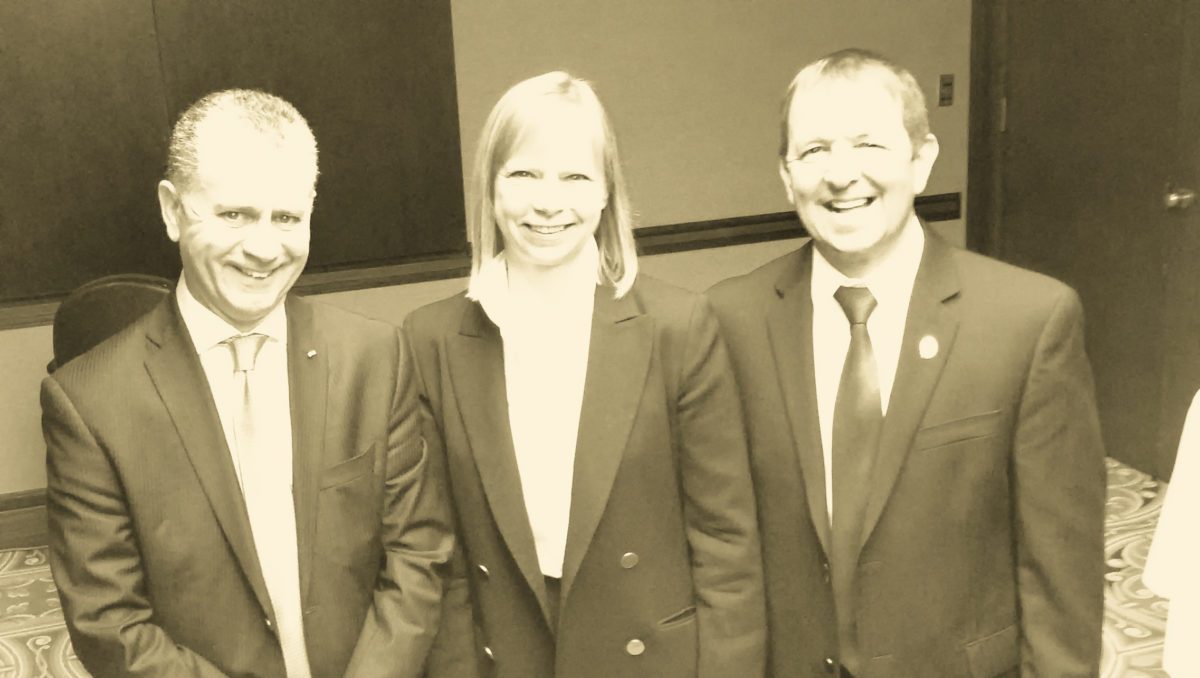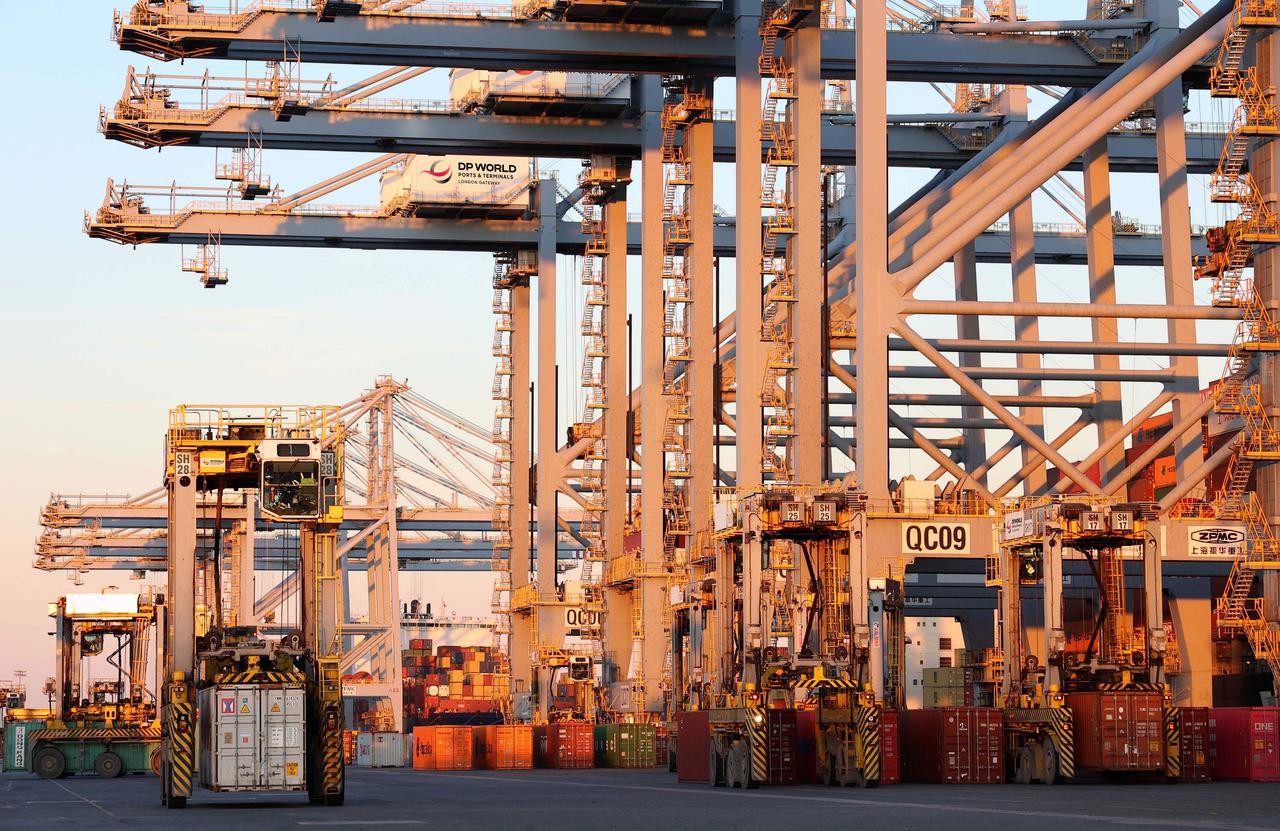(L-R) Graham Westgarth, Kirsi Tikka, Chris Errington
At the Connecticut Maritime Association “Shipping 2013” conference this week, the American Bureau of Shipping hosted an energy efficiency panel highlighting the value of energy management operations at sea. Moderated by ABS Europe’s President and COO Kirsi Tikka, the panel included Chris Errington, Maersk Line Limited’s Director of Maritime Technical Services and Graham Westgarth, Executive Vice President of Operations and Strategy at GasLog.
Throughout the week, the most notable theme for this years conference was “efficiency.” Shipping companies are being forced to do more with less and to come up with new solutions to streamline their operations and to achieve profits in a highly competitive, oversupplied, and evolving market.
Errington notes that last year Maersk Line targeted $40 million in fuel savings and by the end of the year had achieved more than double their target at $78 $83.1 million in savings. This year, their benchmark has moved to $80 million.
“We can do it,” noted Chris Errington, “There are many variables and there’s a significant people part of this equation that is critical to success. Huge fuel savings can be achieved, however getting crews to understand the importance, and their role in saving fuel has, at times, been a struggle. In some cases we’ve been able to influence change by using peer pressure to show those who are performing, and those who are not. It’s an ongoing process that we have to keep working on every day.”
Errington also notes that new paint systems have resulted in improved vessel performance as well. “We have taken six of our vessels out and dry-docked them early just because we could see the paybacks almost immediately.”
Westgarth doesn’t see this energy saving initiative to be all that much different to other initiatives in that past.
“Young people today are much more environmentally aware than the generations which have preceded them. They actually ask questions of their employer of what they are doing with regard to shipping efficiency. I think its a potentially good recruitment tool.”
Methodologies
Like everyone else in the industry, Maersk Line Limited is using “slow steaming” to save fuel and to lower the virtual supply of ships plying the world’s oceans. “Slow speed steaming has had a big affect,” commented Errington. “We never thought we could get the engines down to what they are now.”
Westgarth notes that, “with ships operating on Dual Fuel Diesel Electric (DFDE) plants, the engines allow a lot of flexibility when it comes to power options. The question is, how to do you optimize your speed, be it three engines, four engines… a lot of thought goes into the optimum passage and keeping the logistics chain as efficient as possible.”
“How much regulation does the industry need?” queried Kirsi Tikka. “Would the industry begin designing more efficient ships on their own, or was this due to the effects of the EEDI?”
Westgarth replied, “because of the cost of fuel, I think the industry would have forced the yards to come up with more efficient ships.”
Errington agreed, “even without the regulations, it’s driven by the economics. I don’t think the yards on their own would have done it.”
Westgarth: “I think the majority of shipowners in this industry are very supportive of good legislation. We live in a world where compliance is king” and that all flows down on to the ships.”
Steve Gumpel, ABS’ Vice President for North America: “I have talked with a lot of owners recently. If you consider of all the ship operation types in the world, can any shipowner not afford to do what you’re doing right now?”
Errington: “I think that from an energy savings, I don’t think that any owner can afford not to do this. Fuel is such a factor in daily operations, it just makes sense to embrace it, no matter how big or small the company is.”
Westgarth: “The only thing I would say is that some smaller companies don’t have the wherewithal or resources to manage this.”

 Join The Club
Join The Club











